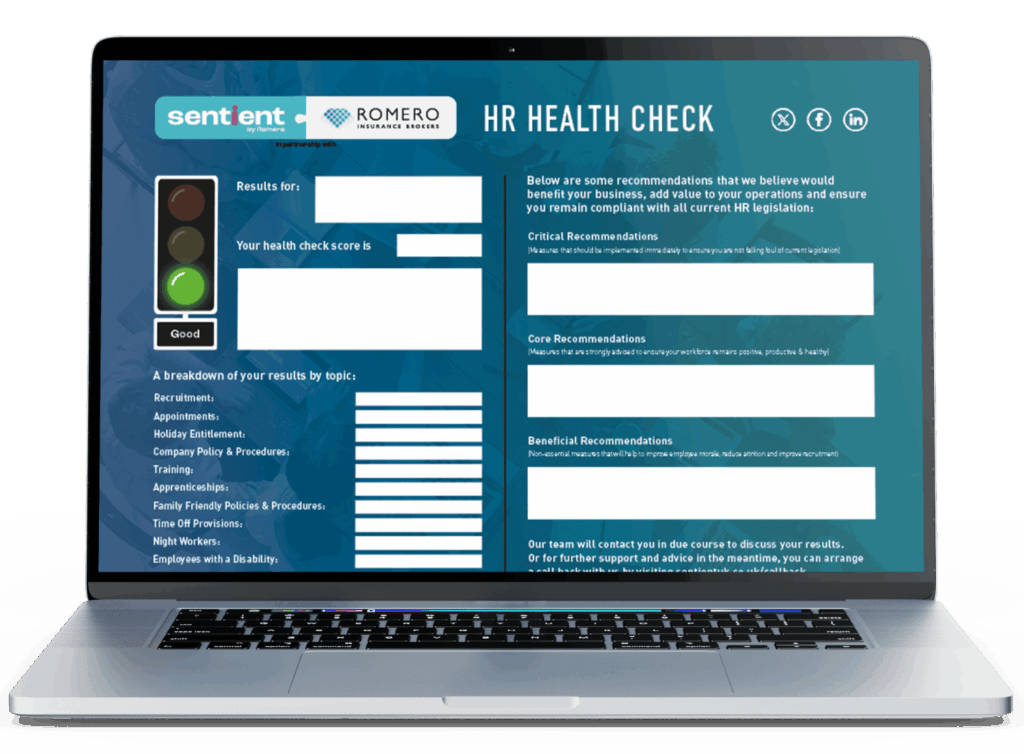Bereavement and parental leave rights – This is 9th of 9 amendments made by the 2025 Employment Rights Bill
New rights now afforded to employees in relation to compassionate leave
The Employment Rights Bill has received a list of recent amendments. From zero hour contracts to confidentiality clauses, many aspects of employment and payment conditions are expected to change. Employers need to fully understand the regulatory changes to their obligations to members of staff, and as to not breach employment law.
Employers will need to understand the specific changes to employee rights in relation to bereavement, paternity leave and unpaid parental leave. The rights are currently only afforded once an employee works for their employer for a certain number of weeks. Employees new to roles are vulnerable if they find themselves in a situation where they need to take parental leave or bereavement.
The Government feels that the present rules unfairly discriminate against employees who want to change jobs. The change should also help to improve the recruitment pool for employers, as people are willing to switch without worry of the need to take leave. By removing restrictions on when employees have earned the right to take leave, flexibility and wellbeing should improve.
A survey conducted by Marie Curie found that one in five workers took unpaid bereavement leave, and over 50% of those were worried about their job security when taking the time off. 49% of respondents said they had to return to work before they were ready because they couldn’t afford to stay off. The Government is looking to make paid compassionate leave a universal right for all workers.
What is the current regulation surrounding bereavement leave?
The right to statutory parental bereavement leave was introduced in April 2020, where employees are entitled to two weeks paid leave following the death of a child or stillbirth. However there was no strict clear legislation around the death of a dependent. Dependents include husband, wife, civil partner, child, parent or person living in their household, or someone cared for.
How much time should be taken is not specified, only legislating that the amount should be reasonable. Employers should have their own bereavement policy in place which distinguishes when leave could apply, how much is provided and if leave is paid, as well as the amount offered. Known as compassionate leave, this needs to be discussed with the employee and could be combined with sick leave or holiday.
Stillbirths and miscarriages are treated differently, with both parents entitled to 2 weeks of leave in addition to the standard maternity or paternity leave. The birth mother is permitted to up to 52 weeks of statutory maternity leave or pay. Employers need to be highly sensitive in regards to support, open communication, requesting their presence back at work, and also how the leave is named – as this is one of the most difficult times in any person’s life.
What are the new regulations for bereavement leave?
With the introduction of the Employment Rights Bill, all employees will gain the statutory right of paid bereavement leave for the death of a dependent. No matter how long an employee has worked for their employer, everyone will receive bereavement leave as a day one right. Furthermore, unpaid parental leave, as well as paternity leave, will be a day one right.
Employees will therefore gain the right to notify their employer their intent to take parental leave from the first day of work. The new regulations will also allow for the continuity of different leave types. Paternity leave can follow shared parental leave similar to maternity leave and adoption leave.
The Government is looking at providing a baseline for employers, including minimum length of obligatory leave depending on the employee’s relation to the deceased, and how the leave is taken. This is part of the Government’s intention to make working life more stable for families. The new addition of one-week unpaid leave guaranteed offers a clear minimum standard for employers to uphold and build upon.
How will the changes to bereavement leave affect employers?
Employers will need to better understand how to interact with employees who are going through bereavement, as well as how to best reintegrate them post-leave. Compassionate leave policies may grant paid or unpaid leave in the event of a bereavement or loss of a baby, frequently going beyond the minimum standard.
Employers will need to be aware the effect of grief on a person’s ability to work. Businesses should adjust their compassionate leave policy so cater to such circumstances where an employee needs additional time off, perhaps continuously utilising their sick leave or annual leave. Employers should review their bereavement or absence policy, making reasonable adjustments where necessary.
Nevertheless, bereavement and parental leave is not common. Yet, an unreasonable refusal to grant time off may constitute grounds to for a claim – dismissing someone for this reason could be automatically substantiated as unfair dismissal.
When within the process of redundancies, businesses need to understand that priority should be given to those returning from family leave. Dismissing someone going through this difficult life period could be viewed as unfair dismissal.
To avoid falling foul of obligations, businesses need to have a clear and informed policy in place. Without a correct policy, employers risk inconsistencies, discrimination, reputational damage and an unproductive demoralised workforce.
Learn more about Employment Law
There are 9 key areas of Employment Law that have been affected by the 2025 Employment Rights Bill.
Each of these areas are critical and will need to be addressed by employers. Employers need to understand their obligations and be careful not to unduly act in any way which could be observed as discriminatory. Employers will need to update their documentation and contracts that directly relate to the changes
To read more about your lawful obligations, Romero Insurance have refined and condensed the Government’s published information into a helpful whitepaper document. The Employment Law Whitepaper by Romero Insurance layout what employers and business leaders need to know about employment law.
Let us review your Employment Risk and Documentation

Contact us to take the HR health check. A HR health check will review your processes and documentation, and provide tailored guidance. The Health Check is conducted by our partners at Sentient, who are a HR outsourcing service and health and safety experts.
Our partners at Sentient will come back to you within 5 working days with a detailed overview of how you can improve your HR function and support your team. This free health check will grade your current practices with a traffic light system, showing the robustness of your HR procedures. Sentient is available for any business of any size who want to update their policies and procedures in time for Employment Law regulation changes.

